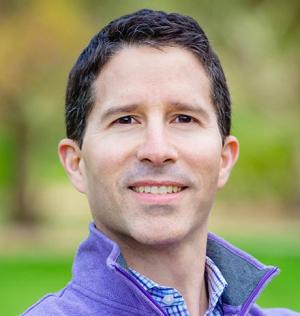Secrets of successful mayoral transitions

Addressing 25 newly elected U.S. mayors last week, Mike Bloomberg told a story about his first days as Mayor of New York City in 2002.
“One hundred days into my first term as a new mayor, reporters asked me: ‘What have you accomplished?’ I said, ‘We built a team.’ They said, ‘Yeah, yeah, yeah, but what did you accomplish?’ And I said, ‘We built a team.’ They couldn’t wrap their heads around my answer. The fact is, the team we built in the first hundred days made possible everything we achieved in the 3,000-plus days that followed.”
The anecdote kicked off the Program for New Mayors at the Bloomberg Center for Cities at Harvard University. The three-day, in-person session focused on how new mayors can set themselves up to successfully lead their cities through their transitions, first 100 days, and beyond, drawing on case studies and conversations about everything from managing a crisis to managing a mayor’s time.
Last week’s classroom session will be followed by five more virtual sessions to support mayors through their first 100 days in office, as well as targeted technical assistance for one of a new mayor’s most critical staff roles: their schedulers.
The Program for New Mayors is part of Mike Bloomberg’s $150-million commitment to build the Bloomberg Center for Cities at Harvard University as a global hub for advancing research, learning, and collaborations with city leaders on local leadership and governance. The annual new mayors program is a collaboration with the Institute of Politics at Harvard and the U.S. Conference of Mayors, who have co-hosted a biennial seminar for new mayors for more than 40 years.
“The Program for New Mayors builds on the strong support our partners have offered two generations of new mayors, and takes it to the next level,” says Leigh O’Neill, Senior Director of Bloomberg Harvard City Leadership Programs at Bloomberg Philanthropies. “The period for new mayors to transition from campaigning to governing is short but critical. This program is designed to help them hit the ground running.”
To learn more about what makes for a successful mayoral transition, we spoke with Mitchell Weiss, who teaches Public Entrepreneurship at Harvard Business School. Weiss served as Chief of Staff to the legendary Boston Mayor Thomas Menino, as well as a transition adviser to current Boston Mayor Michelle Wu, and is author of “We the Possibility,” a book about how local leaders can use more experimental approaches to innovate. He’s also one of the faculty leads for the Program for New Mayors, which met in Cambridge, Mass.
Bloomberg Cities: Why is building the team such a critical place for new mayors to start?
Mitchell Weiss: On some level, it would appear obvious: These teams are ultimately going to lead much of the work. But somehow, bringing them on board can get rushed. Almost all mayors know it's important, but they don't always treat it that way.
The best advice I’ve heard is: Hire for the work, not the headlines. Sometimes during a transition, mayors are still in campaign mode, and everything is seen through a political lens.
How should mayors think about the chemistry of their teams?
A team is not just a collection of individuals. It's important to give a lot of thought to how the people you're picking complement your strengths and weaknesses—and how they work together.
[Read: ‘Teaming’ in and out of City Hall]
Ask three questions. How do these people’s skills, attributes, and experience complement each other’s and the mayor’s? Do they bring a diversity of perspectives? And can they function as a team?
OK, so you’ve hired great people. What’s the key to organizing the team to maximize their impact in city government?
It’s not enough to just get people in seats and sort out what the “org chart” is going to look like. You also need to create a culture of information sharing, collaboration, engagement, and aspirational thinking. And then you need processes that will enable the people to work together. So whether it's decision-making tools or accountability tools, you need processes for helping people to share information, share responsibility, and be accountable.
That culture part can be hard in government.
It’s another thing that can get lost in the rush. Not every mayor stops and asks: What do I want the culture to be in city hall? What values, beliefs, and risk tolerances do we have? How are decisions going to be made? What kind of work is rewarded?
It starts with being explicit about culture, inviting input from the team and from the community, and socializing the way you want city hall to be. And then modeling that with actions and behavior is important.
[Read: Unpacking the secrets of culture change in city halls]
New mayors come in wanting to accomplish big things, but still need to make sure the trash is picked up. How should they think about priority setting?
My colleague Mike Tushman talks about ambidextrous organizations that can look to the future and the present at the same time. Mayors need to be ambidextrous in that way—trying new things, while also taking care of the everyday stuff. But they also need to be ambidextrous in thinking both systemically and specifically.
When Mayor Michelle Wu was transitioning here in Boston, she told a story about helping a resident with a sewer issue in her basement. I like to use it as a story about ambidexterity. If there's a broken sewer in someone's basement, it has very systemic implications. Why is our infrastructure the way it is? But there are also very specific things: How do we help this resident get the water out of her basement?
Mayors, chiefs of staff, and other senior leaders have to be able to balance future ideas and present ideas at the same time—just as they need to do with systemic and specific priorities.
How should new mayors organize their time to account for this?
The schedule itself is essential to maintaining those dual mindsets and executing on them. My colleagues Nitin Nohria and Michael Porter have written on this in the context of CEOs, but the same goes for mayors. Sit with your schedulers and say: Here is what we're trying to get done over the first three months of the year. I'd like to schedule, as best I can, to reflect this. If mayors aren't careful, then everybody else's priorities will take up the calendar. Great schedules are made, not just managed.
Another thing mayors can do is to predict the unpredictable. When we were managing Mayor Menino’s schedule, it was often getting upended because of funerals. Looking back, I wished we’d scheduled funerals in advance! He was a religious mayor in a city where he’d met half the people who lived here. We know he’ll be going to a lot of wakes. We can move the time around, but at least if we block for it then we’re not constantly scrambling for more hours in a day.
One more thing. It's a hard job being mayor. And a mayor's going to need stamina and support. So they and their schedulers have to be deliberate about making sure there's plenty of time to eat, sleep, exercise, do hobbies, and whatever else it is that keeps the mayor sustained. Include key family members in conversations about how they want their schedule to be.
Every mayor is likely to encounter a crisis while in office. How should they prepare for that?
Invest in relationships early. There's an old saying that you never want to be trading business cards during a crisis. It's much better to know your community leaders, your nonprofit leaders, your hospital leaders, all the various public safety officials, your state counterparts before you're in a crisis.
Also, be honest with your community all the time. In a crisis, you're going to need them to listen to you and to believe you. If you’ve given them reason not to believe you, they will remember that. During the 2013 Boston Marathon bombings, the mayor and governor asked people to stay home. This was long before COVID lockdowns—and it was highly unusual. Yet people listened. Why? Because they believed what the mayor and governor were saying.
You often talk to mayors about the importance of entrepreneurial thinking and experimentation—what you called in your book “possibility government.” How can mayors set the stage for this?
I would set the stage for it right up front. Everything from your victory speech to your inaugural speech, the rhetoric should be about trying new things—and being up front with the public that not everything's going to work the first time.
In Saint Paul, Minn., Mayor Melvin Carter set out to use panels of community members to identify finalists for top jobs in his administration. It was a very different way to do hiring—and immediately said to people: This is going to be new. One of Mayor Wu’s first acts after being sworn in was to expand an experiment with free buses. You can do things immediately that convey that you’re not aiming for the status quo.
[Read: The art of ‘possibility government’—and how it can help city leaders]
Any final words of advice for newly elected mayors?
Mayor Menino used to say: Sometimes, you’re going to have to disagree with your constituents because you have to do what you think is right. Your constituents will appreciate that you're being authentic and true. The mayors who have that courage to do what the city needs—even when people disagree—are the ones who will get the most done.


